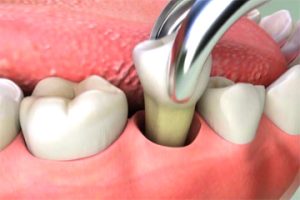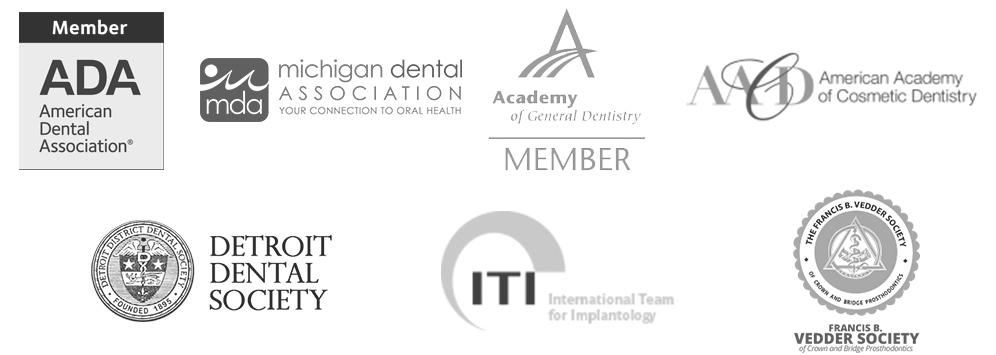The Power of Tooth Extractions in Improving Oral Health
 Are you experiencing discomfort or pain in your jaw? If you’re suffering from damaged, decayed, or infected teeth that cannot be saved, tooth extractions may be the solution you need. Our Farmington Hills, MI dentist, Dr. Roman Shlafer offers tooth extractions to help improve the health and appearance of your smile. Our experienced dentist is proud to serve Michigan patients in Canton, Plymouth, Southfield, Franklin, Beverly Hills, and the surrounding areas.
Are you experiencing discomfort or pain in your jaw? If you’re suffering from damaged, decayed, or infected teeth that cannot be saved, tooth extractions may be the solution you need. Our Farmington Hills, MI dentist, Dr. Roman Shlafer offers tooth extractions to help improve the health and appearance of your smile. Our experienced dentist is proud to serve Michigan patients in Canton, Plymouth, Southfield, Franklin, Beverly Hills, and the surrounding areas.
What is a Tooth Extraction?
 A tooth extraction is a dental procedure in which a tooth is removed from its socket. This procedure may be necessary for a variety of reasons, including overcrowding of the mouth, decay or damage, infection or gum disease, or orthodontic treatment.
A tooth extraction is a dental procedure in which a tooth is removed from its socket. This procedure may be necessary for a variety of reasons, including overcrowding of the mouth, decay or damage, infection or gum disease, or orthodontic treatment.
Reasons for Tooth Extractions
In some cases, a tooth may need to be extracted if it is impacted, meaning it has not erupted fully from the gum line. This can occur with wisdom teeth, which are the last set of molars to emerge in the mouth. Impacted wisdom teeth can cause pain, swelling, and infection, and they often need to be removed to prevent further complications.
Our Farmington Hills dentist also performs extractions for orthodontic or cosmetic reasons. If a tooth is damaged or decayed beyond repair, it may need to be extracted and replaced with a dental implant, bridge, or denture to restore the function and appearance of the smile.
Benefits of Tooth Extractions
There are several benefits to having a tooth extracted, including:
- Relief of pain or discomfort caused by a damaged or infected tooth.
- Improved oral hygiene and overall health by removing bacteria and plaque from the mouth.
- Preventing damage to surrounding teeth by removing overcrowded or impacted teeth.
- Creating space for orthodontic treatment or dentures.
- Improving appearance by removing unsightly teeth.
How Does the Procedure Work?
Tooth extractions are performed under local or general anesthesia, depending on the complexity of the extraction and the patient’s preferences. During the procedure, the dentist will loosen the tooth from its socket and remove it from the mouth.
After the extraction, the dentist will place gauze over the socket to control bleeding and may prescribe pain medication to manage any discomfort. It is important to follow all aftercare instructions provided by your dentist to ensure proper healing and to minimize the risk of complications.
Aftercare Instructions
Dr. Shlafer recommends the following aftercare tips:
- Avoid drinking through a straw or eating crunchy foods for the first 24 hours
- Apply an ice pack
- Take pain medication as prescribed
- Avoid extremely hot liquids
- Follow a soft food diet
It’s crucial to follow the instructions provided by your dentist. If you have any concerns or notice any unusual symptoms, call our Farmington Hills office immediately at (248) 720-5618.
Frequently Asked Questions
The recovery time following a tooth extraction varies depending on the individual and the complexity of the extraction. In general, it can take several days to a week for the socket to heal, and several weeks for the gum tissue to fully heal. Your dentist will provide specific aftercare instructions to promote proper healing and minimize the risk of complications.
The level of discomfort experienced during and after a tooth extraction will vary depending on the individual and the complexity of the extraction. However, tooth extractions are typically performed under local or general anesthesia to minimize discomfort, and pain medication can be prescribed to manage any postoperative pain.
It is important to brush and floss regularly to maintain good oral hygiene, but you should avoid brushing or flossing the extraction site for the first few days following the procedure. Aftercare instructions will be provided to help you maintain good oral hygiene and promote proper healing.



